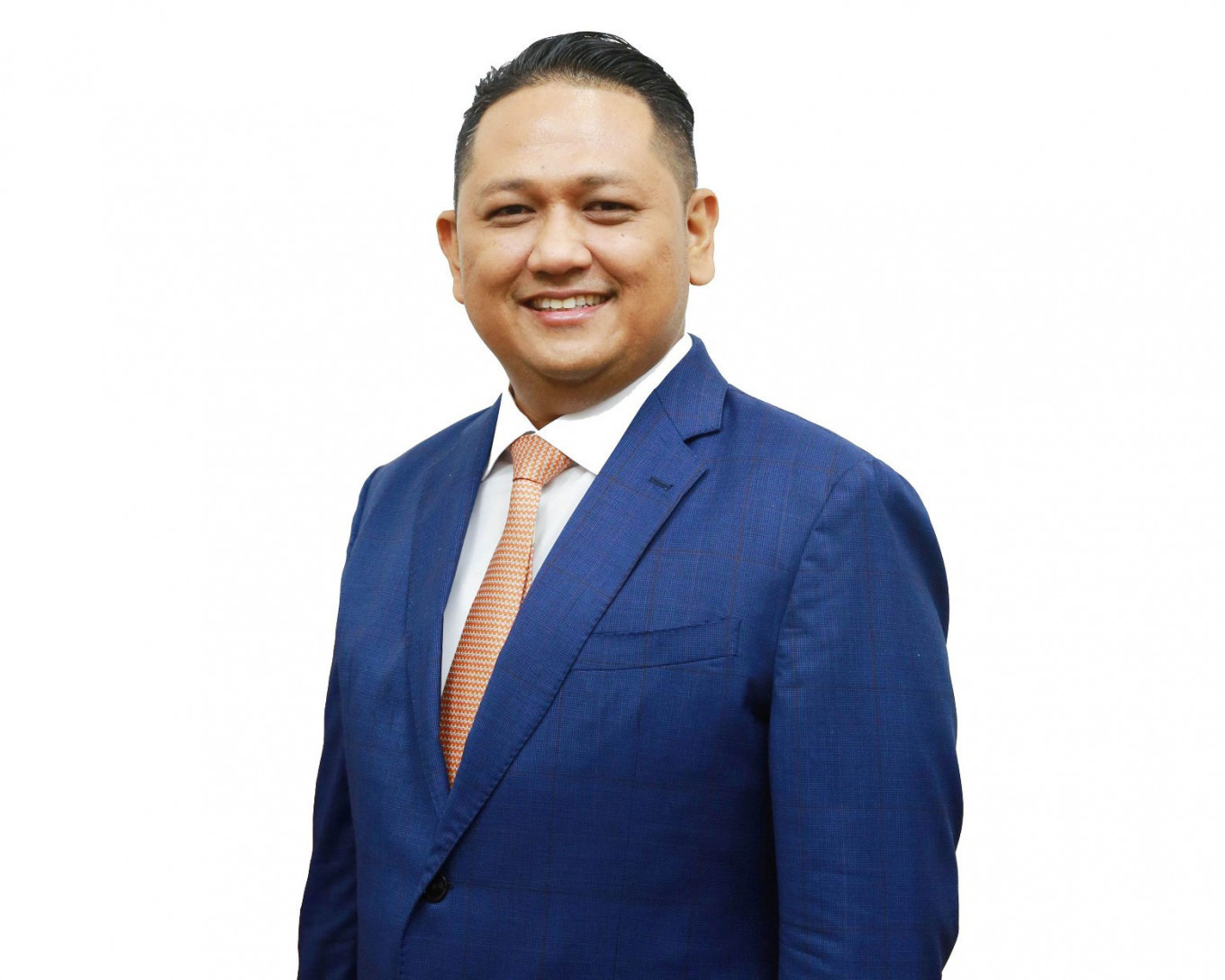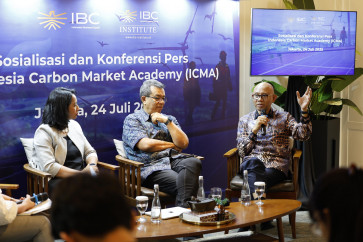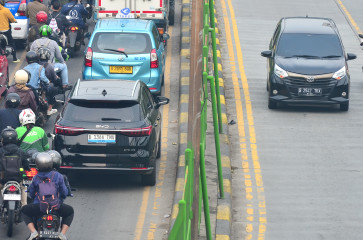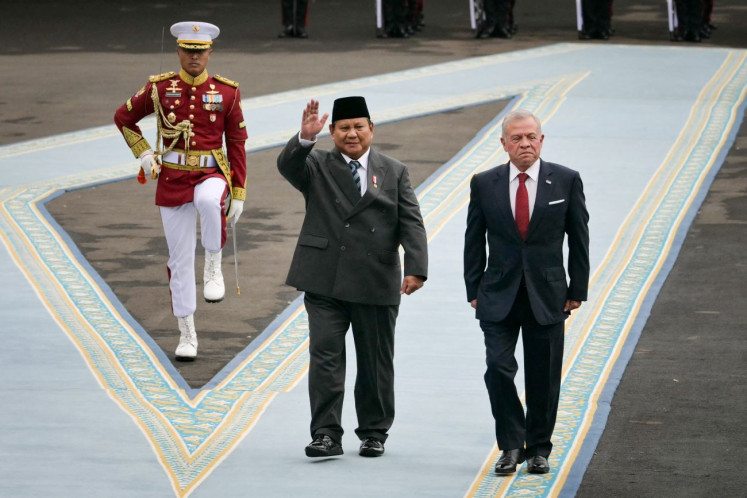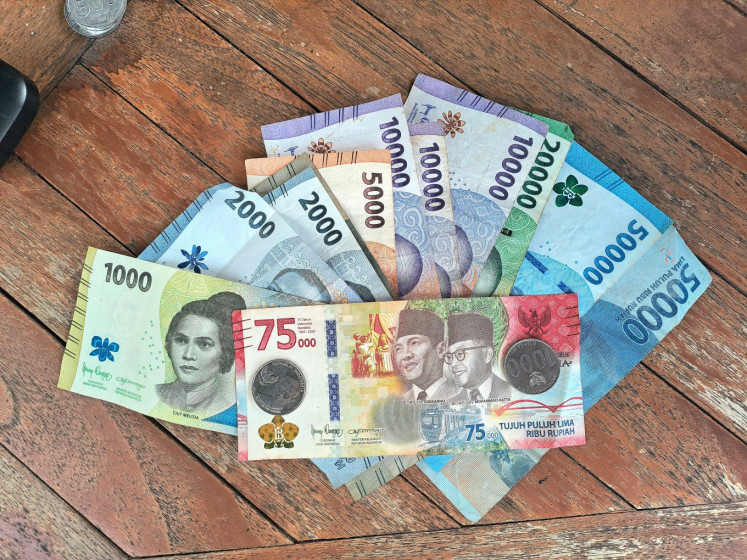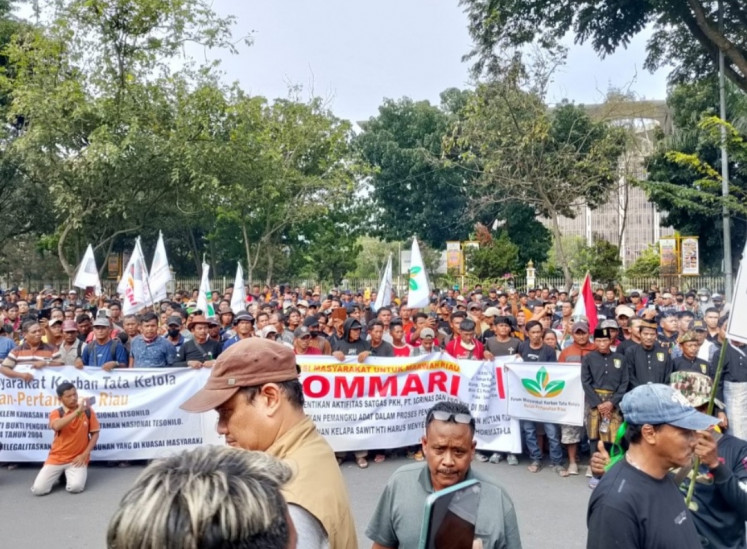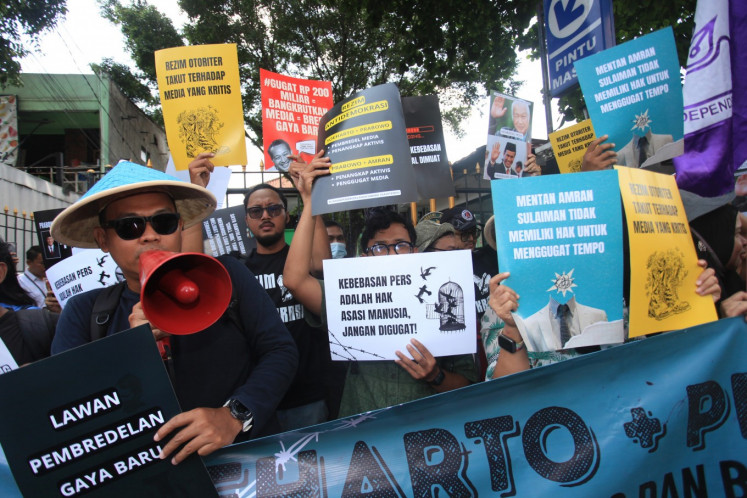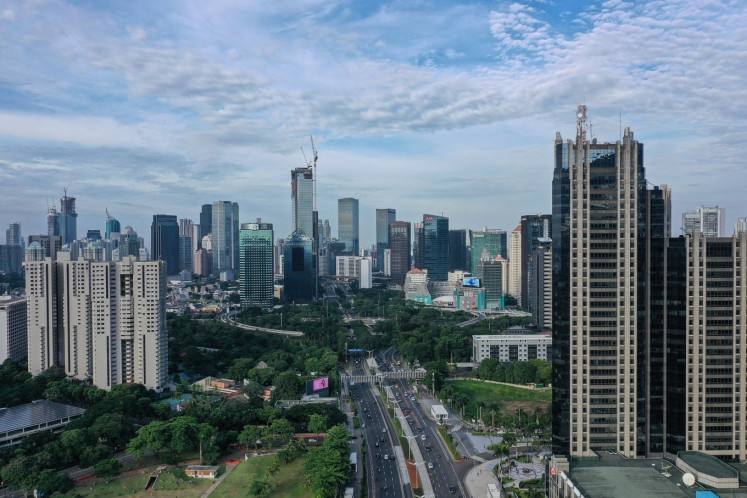Popular Reads
Top Results
Can't find what you're looking for?
View all search resultsPopular Reads
Top Results
Can't find what you're looking for?
View all search resultsIFG proposes innovation for further GDP growth
Change text size
Gift Premium Articles
to Anyone
I
n addition to contributing 61 percent to Indonesia’s gross domestic product (GDP), the micro, small and medium enterprise (MSME) sector reportedly absorbs 97 percent of the country’s workforce, per reported by Indonesia Financial Group (IFG). With almost 70 percent of the population of productive age, Indonesia stands to benefit hugely from demographic dividend.
According to data published by Organization for Economic Co-operation and Development (OECD), Indonesia’s tax-to-GDP ratio is relatively lower than Malaysia and the Philippines. The country seems to have a favorite approach in increasing tax income; by increasing tax the rate, such as taxing non-cash benefits and increasing value added tax (VAT).
In order to ensure growth for the country, one question remains; what should we propose to unleash the potential of our MSMEs in activating economic growth while at the same time increasing income tax potential?
An old proverb says, “Give a man fish, you feed him for a day, but teach a man how to fish, you feed him for lifetime.” Indonesia economic policy has been biased toward the former. In 2023 alone, Rp 212 trillion (US$13.1 billion) was spent on energy subsidy, among all other subsidies. This will become more problematic in the long run.
Fortunately, Indonesians have been proven to have an enormous entrepreneurial spirit. What the country needs is innovation in order to ensure higher income. A case in point in the use of ride-hailing apps such as Gojek and Grab.
In the past, it is quite easy to find ojek (Motorbike taxi) drivers lining-up at certain spots to wait for passengers. With the use of technology, they are now using mobile apps to take orders. In the process, some benefits have included the ability to use smartphone, the conversion from cash to electronic money, the ability use an online navigation system and the ability to understand English.
That said, something must change to make it easy to set up and conduct businesses for the MSME sector. One important aspect of business is payments. According to IFG, the current payment ecosystem is very costly for MSMEs. The transaction costs or interchange fees can be as high as 2 percent per transaction.
Secondly, the settlement takes too long, making the cost of funds also too high. Most transactions have one- or two-days lag. With very tight working capital, many MSMEs still prefer cash transactions.
Therefore, the government should invest in setting up a national switching company backed by a line to Bank Indonesia for liquidity. This would help lower the cost of transactions, which in turn would stimulate the growth of MSMEs.
Currently, the country has four switching companies: ArtaJasa, Alto, RIntis and Jalin, each with their network of banks. In a credit card transaction, the fees are split into several companies; Visa or Mastercard as the principal will take a cut, the switching company will take a cut, the acquiring and issuing bank will each take a cut – making it among the costliest transaction.
We however lacks a switching company that offers no transaction cost and real-time settlement. That kind of integrated system can only come from the government. This system will allow MSMEs to finish a transaction efficiently, and maintain the working capital they have.
As more and more MSMEs adopt the new payment system, the government would be able to amass relevant information about the capacity of each MSMEsto pay tax; allowing the government to form tax policy that does not place too much burden on the MSMEs.
In addition, with the transaction data, the government can also develop a credit score for the MSMEs, allowing them to get working capital loans. In turn, these loans will enable the MSMEs to grow even further.
The scheme would not only help MSMEs grow, but would eventually allow the government to increase tax income potential for much higher penetration of the taxable base, increase the transparency of taxable income, create more relevant tax policies that are not putting too much burden on MSMEs, and in time, it would lead to further GDP growth.
The solution is simple, yet robust, and the technology is ready to deploy. The only missing ingredient is the political will and commitment to do it. If we can build such an ecosystem and grow the MSMEs potential, Indonesia will truly experience demographic dividend.
About the writer: Pantro Pander Silitonga is business director of the Indonesia Financial Group (IFG). He is well-known as a strategy professional with a reputation for the ability to solve complex problems and to execute large and company-wide transformations.

